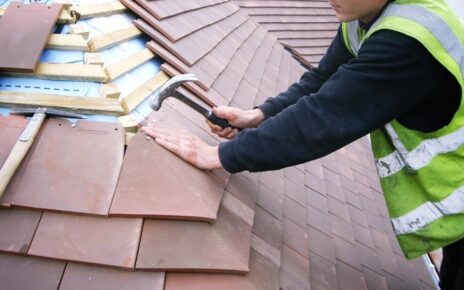If you’re passionate about sustainability and want to do your part in reducing waste, then learning how to do composting at home is a fantastic place to start. Not only does it benefit the environment by diverting organic materials from landfills, but it also provides nutrient-rich soil for your garden or plants. So roll up your sleeves and get ready to embark on this eco-friendly adventure as we explore the ins and outs of home composting. Whether you have a sprawling backyard or just a small balcony, there’s a composting method that will suit your space and lifestyle. Let’s dig in!
What is composting?
Composting is a natural process that transforms organic waste into nutrient-rich soil. It’s like nature’s own recycling system! By breaking down things like food scraps, yard trimmings, and even paper products, composting creates a valuable resource that can be used to nourish plants and gardens.
At its core, composting is all about harnessing the power of decomposition. Microorganisms such as bacteria and fungi break down the organic materials over time, converting them into humus – a dark, crumbly substance that smells earthy and sweet.
The benefits of composting extend far beyond just reducing waste. When we compost at home instead of sending our kitchen scraps to the landfill, we help reduce greenhouse gas emissions. Organic materials in landfills produce methane gas as they decompose without oxygen – methane is a potent greenhouse gas that contributes to climate change.
Composting also improves soil health by enhancing its structure and moisture-holding capacity. The rich humus created through this process provides essential nutrients for plants’ growth while acting as a natural fertilizer – no need for synthetic chemicals!
Whether you’re an avid gardener or simply looking for ways to reduce your environmental impact, incorporating composting into your routine is a fantastic step towards sustainability. Plus, it’s incredibly rewarding to see your kitchen waste transform into something so beneficial for Mother Earth!
What does composting do for the environment?
What does composting do for the environment? Composting is not just beneficial for your garden, but it also has a positive impact on the environment as a whole. Let’s take a closer look at how composting helps our planet.
Composting reduces waste in landfills. When organic materials such as food scraps and yard waste are sent to landfills, they break down anaerobically, producing methane gas which contributes to climate change. By diverting these materials into your compost bin instead, you can significantly reduce methane emissions.
Furthermore, compost improves soil health and fertility. Adding compost to your garden soil enriches it with essential nutrients and microorganisms that help plants grow stronger and healthier. This means less reliance on synthetic fertilizers that can be harmful to the environment when overused or mismanaged.
Composting also aids in water conservation. When you apply compost to your garden beds or potted plants, it acts like a sponge by retaining moisture in the soil while allowing excess water to drain properly. This helps prevent erosion and runoff of pollutants into rivers and lakes.
Additionally, by practicing home composting, you contribute towards closing the nutrient cycle. Instead of relying solely on external inputs like chemical fertilizers or peat moss extraction (which depletes natural habitats), you recycle organic matter back into the earth – returning valuable nutrients from kitchen scraps and yard trimmings back to where they belong.
Through reducing landfill waste, improving soil health and fertility, conserving water resources, and closing the nutrient cycle; composting plays an important role in protecting our environment for future generations.
How to do composting at home
Composting at home is a fantastic way to reduce waste and create nutrient-rich soil for your plants. It’s not only beneficial for the environment but also a great way to save money on buying compost or fertilizer. Plus, it’s incredibly easy to do!
To start composting at home, you’ll need a compost bin or pile. This can be as simple as an old trash can with holes drilled in the sides for air circulation. Place it in a convenient location that gets some sunlight.
Next, gather your compostable materials. These include fruit and vegetable scraps, coffee grounds, eggshells, yard clippings, and even shredded paper or cardboard. Avoid adding meat, dairy products, oils, or pet waste as these can attract pests.
Layer your ingredients in the bin – alternate between dry carbon-rich materials like leaves and straw and moist nitrogen-rich materials like kitchen scraps. Aim for about three parts brown matter (carbon) to one part green matter (nitrogen).
Now comes the waiting game! Composting takes time; expect anywhere from two months to a year depending on various factors such as temperature and moisture levels. To speed up the process, turn your compost regularly with a pitchfork or shovel to aerate it.
When your compost is dark brown with an earthy smell and crumbles easily in your hand – congratulations! You’ve made usable compost! Spread it around your garden beds or mix it into potting soil before planting.
So why wait? Start composting at home today! Your plants will thank you while you help make our planet greener one scoop of decomposed organic matter at a time!
What to put in your compost bin
Composting is a fantastic way to reduce waste and create nutrient-rich soil for your garden. But what exactly should you put in your compost bin? Here are some key ingredients that will help you achieve a successful composting process.
Kitchen scraps such as fruit and vegetable peelings, coffee grounds, tea bags, and eggshells are excellent additions to your compost pile. These organic materials break down easily and provide essential nutrients for the decomposition process.
Next, yard waste like leaves, grass clippings, small branches, and plant trimmings can also be added to your compost bin. Just make sure not to include any diseased or pesticide-treated plants as they could harm the beneficial microbes responsible for breaking down the organic matter.
Additionally, adding brown materials such as dry leaves or shredded newspaper helps create a balanced carbon-to-nitrogen ratio in your compost pile. This ensures proper decomposition and prevents any unpleasant odors from forming.
Avoid putting meat products or dairy items in your compost bin as these can attract pests and cause unpleasant smells. Similarly, oily or greasy substances should be avoided as they can disrupt the natural decomposition process.
Remember to turn or mix your compost regularly to provide oxygen for the microorganisms involved in breaking down the organic matter. This helps speed up the decomposition process and produces rich humus-like material that is ready for use in gardening.
By being mindful of what goes into your compost bin, you’ll ensure a healthy environment where beneficial organisms thrive while creating nutrient-dense soil amendment for all of our gardening needs!
When to start the composting process
Timing is everything when it comes to starting your composting journey. The best time to kickstart the process is in the spring or fall, when temperatures are moderate and there’s a good balance of moisture in the air.
Starting in the spring allows you to take advantage of warmer weather, which speeds up decomposition. Plus, with all that fresh garden waste from trimming plants and clearing out beds, you’ll have plenty of material to get started.
On the other hand, beginning composting in the fall means you can make use of fallen leaves as a carbon-rich ingredient. These dry leaves provide excellent insulation during colder months and help maintain an optimal temperature for microbial activity within your compost pile.
It’s important not to start composting too late into winter or too close to freezing temperatures. Cold weather slows down decomposition significantly, making it harder for microorganisms to break down organic matter effectively.
Remember that patience is key when starting your compost pile. It takes time for nature’s magic to happen and turn your kitchen scraps into nutrient-rich humus. So be sure to plan accordingly and give yourself enough time before expecting usable compost for your garden or potted plants!
How to make sure your compost is usable
In the end, creating and maintaining a compost pile at home is not only beneficial for the environment but also a rewarding experience. By diverting organic waste from landfills and turning it into nutrient-rich soil, you are taking a small step towards sustainability.
To ensure that your compost is usable and effective, here are some key tips to keep in mind:
1. Regularly monitor the moisture level: Your compost pile should be damp like a wrung-out sponge. If it becomes too dry, add water; if it becomes too wet, mix in dry materials like leaves or shredded paper.
2. Turn the pile regularly: Mixing or turning your compost helps aerate it and speed up decomposition. Aim to turn your pile every few weeks using a pitchfork or shovel.
3. Add balanced ingredients: Remember to maintain a good balance of green (nitrogen-rich) and brown (carbon-rich) materials in your compost bin. This will promote decomposition and prevent any unpleasant odors.
4. Keep out harmful items: Avoid adding meat, dairy products, oily foods, pet waste, weeds with seeds, diseased plants, or any chemicals to your compost pile as they can attract pests or contaminate the final product.
5. Patience is key: Composting takes time—typically several months to one year—depending on various factors such as temperature and how often you turn the pile. Be patient and let nature do its work!
By following these steps and committing to regular maintenance of your compost bin, you can create high-quality humus-like material that enriches your garden soil while reducing waste sent to landfills.
So why wait? Start composting at home today! Not only will you contribute positively towards our planet’s health but also enjoy the benefits of nourishing soil for robust plant growth – all from kitchen scraps!





